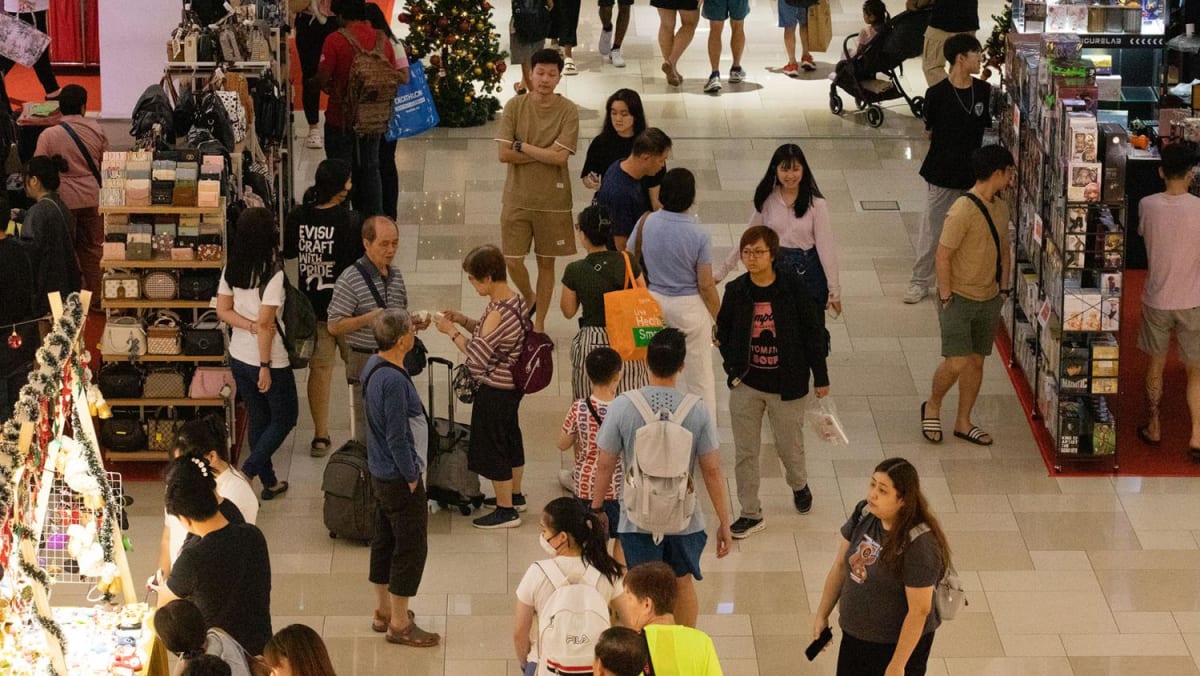
Each week, TODAY’s long-running Big Read series delves into the trends and issues that matter. This week, we look at whether Singaporeans love for shopping and holidays in Johor, especially Johor Bahru, have led to rising prices there, a perception that locals have. This is a shortened version of the full feature, which can be found here.
 By
By
Amanda Yeap
THE BIG PICTURE
Sales executive Siti Atiqah Ahmad Daud, 35, attributed the higher prices of staple foods and increased living costs to the presence of tourists, particularly from Singapore.
“A lot of Singaporeans come here because of their stronger currency. They want to eat good food and buy things for cheap here.
“But for locals like us, it’s not very good. It’s like there’s ‘competition’ because they can afford to buy many things at higher prices, and we can’t,” she told TODAY.
The mother of three children aged two to 15 said the prices of staple food, such as rice and meat, have risen sharply since the MCO was officially lifted at the end of 2021.
“Now, a lot of things cost at least 50 per cent more than they used to. It’s very sad to see the strength of our ringgit going down,” she lamented.
Retail shop manager Beanz Ho, 31, shares the same sentiment, noting the challenges Johor Bahru residents face with rising costs due to the spending of Singaporeans.
For this reason, Mr Ho prefers to stay in Kulai, a town some 30km from Johor Bahru.
However, not all Johoreans feel that Singaporeans are the cause of higher prices in their state.
Retiree Chin AB, 76, said Malaysians should not “blame” Singaporeans for soaring prices because inflation is happening worldwide, not just in the country.
“Perhaps, yes, there will be some impact, but ultimately, Singaporeans coming over makes JB a livelier place,” he said.
According to a report by the Department of Statistics in Malaysia, Johor’s year-on-year inflation as of October — the latest figures available — is at 1.7 per cent.
The top five categories that reported the highest year-on-year inflation in Johor are:
education (7.5 per cent)restaurants and hotels (4.1 per cent)health (3.8 per cent)food and beverages (3 per cent) furnishing and household maintenance (2.4 per cent)
On its part, the Johor state government has announced various schemes to help residents cope with inflation.
These include a RM300 monthly allowance given to Johor fishermen and a rice aid programme where all households are entitled to a 10kg bag of rice. Married couples get relief with a one-off RM1,000 financial assistance under a programme for newlyweds.
The state has also set aside more than RM300 million in the Johor 2024 Budget to assist residents who fall within the lowest 40 per cent category by income.
THE BOTTOM LINE
Contrary to common perception, local businesses and economists told TODAY the rising cost of living in Johor Bahru can be attributed to a combination of local and global factors.
Some business owners noted that the weakening ringgit has led to a spike in the cost of raw materials, forcing them to have to raise prices to survive or make do with lower profits.
Multi-label fashion store Bev C’s owner, Ms Beverly Ang, 40, said while she agreed that Singaporeans have higher spending power, she did not see this as the reason for price hikes in Malaysia, particularly Johor Bahru.
“I think it’s because our political situation is not stable. Our prime minister (Anwar Ibrahim) has only served for a year, so the situation directly impacts our currency exchange rate.”
Sunway University economics professor Yeah Kim Leng said Singaporeans, too, see higher prices of goods and services in their country due to inflation, which has prompted them to travel to Johor Bahru for cheaper goods.
The core inflation of Singapore rose from 3.0 in September to 3.3 per cent in October. The figures stood at 5.5 per cent in January and February, a 14-year high.
Prof Yeah said Johor needs to effectively look into capacity expansion, considering the spike in demand from Singaporeans after Covid-19 restrictions were lifted.
Otherwise, it could lead to “overheating”, whereby an economy is unable to expand to meet the increased demand, resulting in prolonged periods of inflation.
For now, he has yet to see Johor Bahru reach this stage despite the higher price pressures faced due to some slack in the labour and housing markets.
Dr Carmelo Ferlito, chief executive officer of Kuala Lumpur-based think tank Centre for Market Education, said Malaysia is now “paying the consequences” for the policies introduced to alleviate the financial burdens of households during the pandemic.